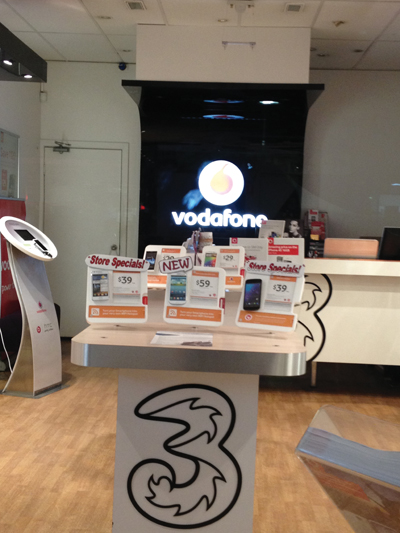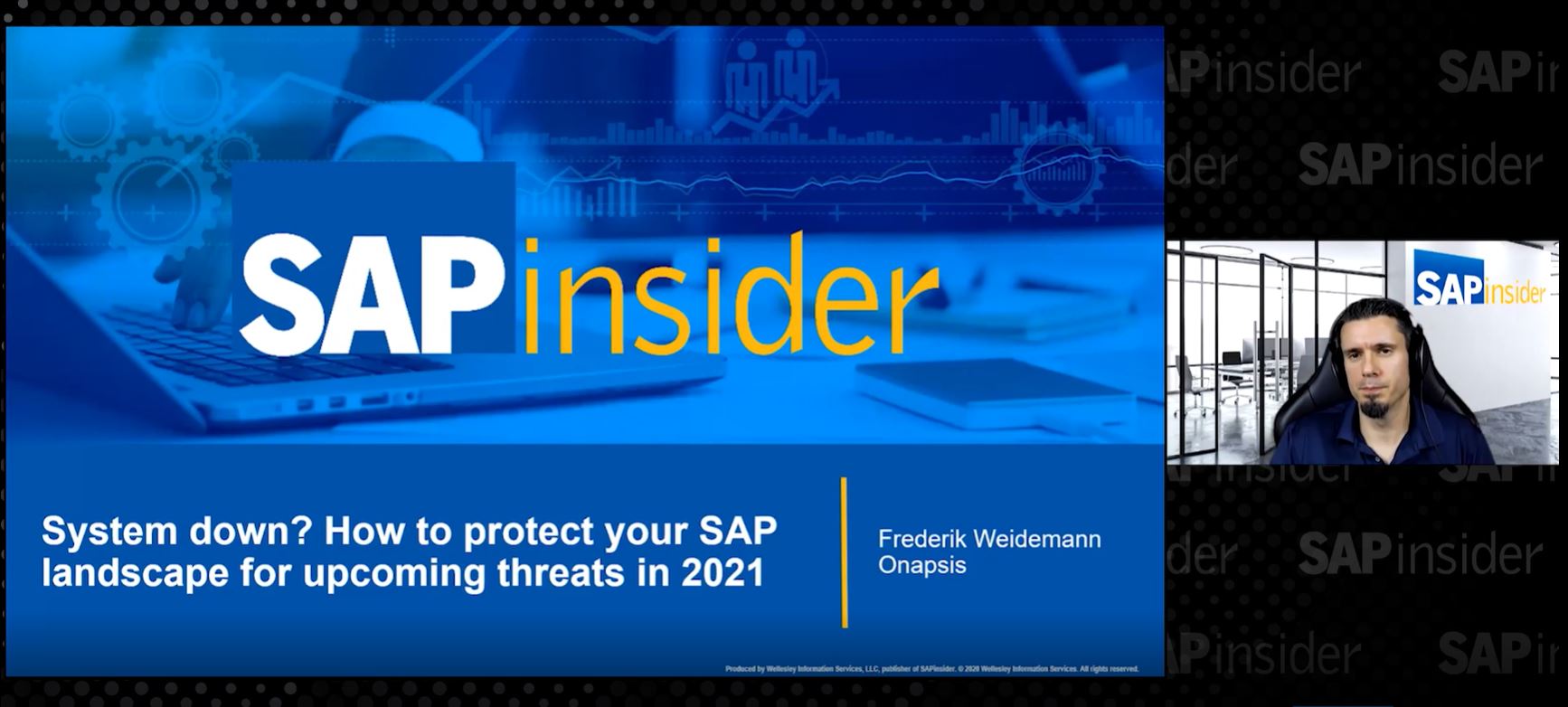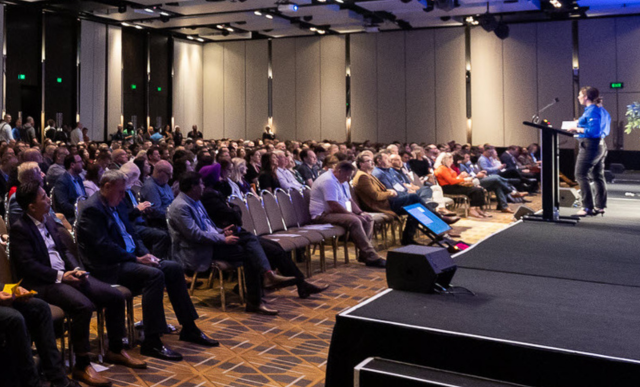Vodafone Goes Mobile with One of the World’s Biggest SAP ERP Rollouts
Company Snapshot
Vodafone GroupHeadquarters: London, England Industry: Mobile phone service provider Employees: 86,400 Revenue: $72.6 billion (£46.6 billion) (Nasdaq: VOD) Company details:
SAP solutions: SAP ERP, SAP ERP HCM, SAP SCM |
In today’s booming mobile environment, Vodafone Group — a business that has mobility hardwired into its DNA — considers itself fortunate to be in the right industry at the right time, with the right products and strategy. The business has seen incredible growth since its avant-garde beginnings 27 years ago. By revenue, it is the largest mobile service provider in the world, and it services almost 400 million customers across Europe, the US, Africa, and Asia.
London-based Vodafone grew quickly in its various markets by successfully establishing local operating companies that catered products and services to the local market’s needs. However, the business lacked common practices, centralized operations, and data sharing between operating companies. For Vodafone to continue to grow at such a robust pace, the company needed to function more like a single entity and less like a network of individual businesses.
And a major business transformation has done that. In the next phase of transformation, the company plans to use mobility to continue its growth strategy.
“Given our business, we’d like to see about 80% of our internal transactions happening on a mobile device,” says Niall O’Sullivan, Global Finance Transformation Director at Vodafone. “We are obsessed with operating with speed, simplicity, and trust. With this transformation completed, I believe that mobility can help really drive speed and simplicity in everything we do.”
Vodafone employees have been using mobile apps on their BlackBerry devices and a mobile intranet for years. “We always focused on mobile, but now we are working on bringing mobility to enterprise applications,” says O’Sullivan. “For example, we want our employees to be able to approve leave requests or expense reports while traveling — in a secure, quick, and easy-to-use mobile app — instead of clicking on the internet and using office time for those tasks.”
|
|
“We are obsessed with operating with speed, simplicity, and trust. With this transformation completed, I believe that mobility can help really drive speed and simplicity in everything we do.”— Niall O’Sullivan, Global Finance Transformation Director, Vodafone |
Transformation Strengthens the Core
In 2006, a group of Vodafone executives went to the company’s board with a plan for a business transformation aimed at creating a centralized shared services organization and a set of common processes in finance, human resources, and the supply chain for all of its operating companies. The implementation plan called for a core project team to visit each of the individual operating companies and implement these new processes locally with the help of a systems integrator and local resources. The technology platform that would underpin this transformation would be an SAP ERP system — designed to facilitate the sharing of information and drive common processes. This will now be combined with the power of Sybase Unwired Platform. O’Sullivan hopes this mixture of technology will make access to Vodafone’s core enterprise systems for the 63,000 SAP users as easy as shopping online at Amazon and eBay or using a mobile app on an iPhone or Android device.
“Being on one global platform for finance, HR, and the supply chain would speed up our business processes and make life simpler and better for our employees — even those who don’t access the SAP system on a daily basis and might only use it every few weeks to enter a leave request,” says O’Sullivan. “The key is to engage more of these occasional SAP users and get them interacting with the system on their mobile device.”
Setting the Stage: A Business-Led ProjectFrom the start of the initiative, Vodafone management wanted to instill the idea that the project was a business transformation underpinned by an ERP implementation and not an ERP implementation that would change local business processes. To help drive that message home, the board chose O’Sullivan, a former CFO of an operating company, to lead the project because he came not from IT, but from the business side. “We wanted to be sure everyone understood from the beginning this was a business transformation,” he says. “And we learned you need to remind people of that at every stage of the project.” A full year before the ERP implementation began, all of the operating companies’ department heads of finance, supply chain, and human resources attended a series of workshops in London to map out common, global processes in those key areas. O’Sullivan says the goals of those workshops were to agree on core concepts and gain buy-in from the businesses for proposed changes. Once the processes were firmly established, Vodafone took another step to ensure that they would be implemented as designed, and that the business leaders maintained control over the processes after the ERP implementation began. That step included creating the Vodafone Global Design Authority, a committee made up of key senior business leaders across the organization responsible for owning the processes. Any time a person or group suggested a change to one of the processes (which included the IT organization during the ERP implementation), the Global Design Authority had to approve the change. |
Starting with Procurement
How does a business begin its journey undertaking one of the biggest SAP ERP implementations in the world? With a year of process design and fine-tuning completed, Vodafone targeted procurement as the first business process for transformation using the new SAP ERP system. Like many decentralized companies spread across a wide geography, Vodafone wanted to better leverage its massive spend with its material and service suppliers. By tackling procurement early on, the transformation project could gain ROI quickly and win further support internally.
But rather than establish a centralized procurement department, Vodafone created a procurement company that is based in Luxembourg and operates on the centralized SAP platform. As O’Sullivan explains, today, the Vodafone Procurement Company signs the contracts with suppliers and buys goods or services on behalf of the individual Vodafone businesses. The unique structure ensures the majority of the company’s spend goes through the central organization. Suppliers can better see and plan their volumes with Vodafone because they’re selling to one company instead of to many.
Globetrotting: Technology Rollouts
With the new procurement company up and running on the SAP system, Vodafone took on its next major transformation step: create a centralized shared services organization and bring it onto the SAP ERP system. Vodafone selected Budapest, Hungary as the location and built an entire shared services organization from scratch — including purchasing a new office building and hiring staff — while simultaneously implementing SAP ERP.
“This was the first time we brought in shared services, so getting Hungary up and running was a huge deal for us, especially because we were still designing the SAP ERP system while implementing it,” O’Sullivan says. The company has since established two more shared services organizations in India and all are running smoothly on SAP ERP.
After the pilot implementation in Hungary, Vodafone chose to introduce the operating company in Germany to the new processes and brought it onto the SAP platform. As Vodafone’s largest market, the project team felt this company would present the biggest transformation challenge. “Germany could not go wrong,” says O’Sullivan. “We had to make sure the system worked properly, so we did a tremendous amount of testing and made all the necessary modifications before we went live.”
From there, the project team brought a long list of operating companies online, prioritizing the implementations based on each operating company’s size, complexity, and appetite for change. “The early rollouts are difficult and you need all the support you can get,” O’Sullivan says. “Early successes are vital to keep the momentum and support of the executive team.”
Each operating company brought its own unique challenges and demands, and no two rollouts were exactly the same. Many of the companies had grown very quickly, and chose numerous different legacy systems based on local requirements or competitive reasons. Challenges usually involved striking a balance between time, quality, and cost — move too quickly and quality will suffer, which increases costs in the long run; focus too much on quality, though, and the project will slow to a crawl while costs spiral.

Making People
a Priority
In addition to which legacy systems were currently in place, O’Sullivan says there were two major personnel factors that determined how successful a rollout would be: the skills of the local project team and the willingness of the local organization to accept change.
Vodafone’s primary systems integration partner, Accenture, filled in skills gaps when needed and assisted with change management in the local markets. Gradually, the project team — including Vodafone internal staffers and the Accenture experts — learned to assess early on how to best allocate resources in a specific project. For example, if members of an operating company weren’t present for the project kickoff meeting, or they were there but disinterested, the project team knew that company would require more attention.
“If they didn’t show up to the kickoff meeting, it was a pretty clear sign there would be some pushback,” O’Sullivan says. “Or if their comments at the meeting were negative or they had very few questions, it demonstrated they were not that engaged in the project.”
At the same time, the project team had to be sensitive to local trends occurring during the rollouts. For example, if an operating company resided in a country experiencing a downturned economy, the personnel there may have mixed feelings toward the rollout. Introducing a dramatic business and technology change could be embraced by some as a way to improve their situation, but eyed by others as an additional distraction during a very stressful time.
“We learned the success of these projects depended on the people involved even more than we realized,” O’Sullivan says. “That includes the strength of the core team, the expertise from the systems integrator, and a strong local team at the operating companies. It’s imperative that the various teams have the right skills and work seamlessly together in the local projects.”
The Latest Benefits and Initial Mobile Apps
Vodafone is now finishing the rollout with its remaining operating companies and beginning to loop back to the earliest implementations to deploy IT functionality updates and make improvements based on what it has learned in the process. For example, O’Sullivan says the team learned a lot about usability based on employee testing and feedback over the course of the project, and is enhancing the interfaces for the early rollouts to be more user-friendly.
The business has also started to roll out some initial enterprise apps for mobile devices. The first mobile app was a travel and expense reporting app. “Employees can take a photo of their receipts and get paid without using any paper, and they can request or approve leave requests on their phones all at one time,” O’Sullivan says.
So far, Vodafone has signed up for four applications, with more to come. “We think these mobile apps will be a major advantage in driving compliance, reducing the level of frustration in the usage, and reducing the level of resistance to the actual processes themselves,” he says. “We want to implement as many apps as quickly as we can and get as many users as possible to have the vast majority of their interaction with the system on their phone.”
But the potential goes much deeper than that, according to O’Sullivan. “Because mobility provides easy access for employees who don’t typically engage with the SAP systems, more employees are using the system,” he says. “And the more users we have on the system, the greater the return on investment.”
Vodafone’s business transformation project is producing real results both in terms of cost savings and business efficiency. At a strategic level, the benefits of getting the various operating companies to think more uniformly has produced less tangible, but equally important benefits. “This was the first time we introduced the shared services concept in this company, and the change in thinking that idea brings is significant,” says O’Sullivan. From an IT perspective, the support and administration of one single centralized system is much more efficient than supporting many local systems.
When O’Sullivan looks back on the scope of Vodafone’s transformation, he’s proud of what the team has accomplished. “We affected tremendous change across the organization. We established and implemented common supply chain, HR, and finance processes that now work in every market across the business. And the underlying technology that pins it all together is the common ERP system.”
Vodafone can now show its customers how the business itself is working internally with speed, simplicity, and trust.





